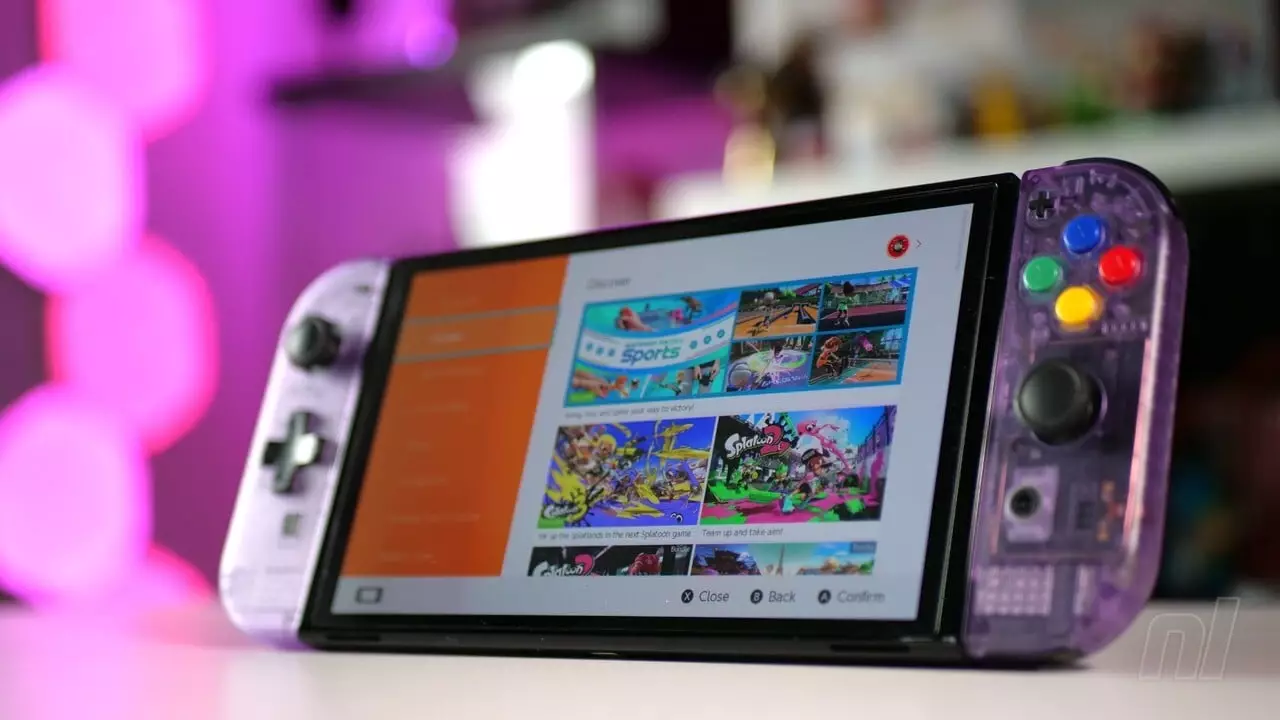In the rapidly evolving landscape of digital gaming, the Nintendo Switch eShop remains a point of contention among developers and gamers alike. As of 2025, the storefront is under scrutiny not just for the user experience it offers, but for the challenges faced by those who attempt to sell their games on it. Recent analyses have brought to light the pitfalls and frustrations that developers encounter, raising questions about both the integrity and functionality of the platform.
The struggle to navigate the eShop is not merely a consumer issue; it also deeply affects the creators of gaming content. Reports indicate that many developers feel overwhelmed by the proliferation of subpar games that crowd the digital shelves, obscuring their own titles. One developer, who chose to remain anonymous, made an unsettling claim: “Once you gain approval for even one game, the floodgates open.” This highlights a profound loophole; with a single approved title, a studio can release staggeringly poor games without significant repercussions.
This sentiment underscores a broader concern regarding regulatory oversight within the eShop. Developers have asserted that the platform’s lenient policies make it alarmingly easy to introduce questionable titles under the guise of legitimate products. An example cited in discussions was the potential for developers to create games with ludicrous names that might escape immediate scrutiny. The overwhelming quantity of exposé titles detracts from valuable marketing resources and leaves consumers frustrated by the chaff mixed in with the wheat.
At the crux of this situation is a culture where developers prefer to seek forgiveness rather than permission—a policy that inevitably leads to negligence in quality control. Unlike other platforms, where guidelines are explicitly delineated and enforced, Nintendo is perceived as more lenient, granting developers considerable leeway. As the anonymous developer elaborated, the consequences for releasing misleading or poorly developed games often result in little more than a reprimand. This lack of stringent governance is a double-edged sword; while it provides more freedom, it compromises the integrity of the platform.
Moreover, there exists a paradox where, while developers find it frustrating to have their games rejected with little explanation, they are simultaneously overwhelmed by the lack of moderation in the types of games that can be published. As these developers have noted, the inconsistency in editorial policy creates an unpredictable environment, further complicating the already arduous process of getting games into the eShop.
It is important to examine how Nintendo’s eShop stacks up against the platforms of its competitors. While digital stores managed by Sony, Microsoft, and Valve also face their own challenges, developers have pointed out that Nintendo’s long-standing inconsistencies paint a particularly dismal picture for the future. One developer voiced skepticism over the prospect of any tangible improvement, declaring, “It’s logic-defying how their stores are so bad.” Such critiques imply that without significant restructuring, developers may continue to face a plethora of hurdles when attempting to engage with the eShop.
In contrast, alternatives are emerging amidst these frustrations, such as innovative concepts like ‘Better eShop,’ a tool designed to refine the game discovery experience. By focusing on advanced categorization and filtering systems, developers hope this initiative could eventually mitigate some of the chaos currently plaguing the storefront.
With these insights from developers, it is clear that the Nintendo Switch eShop has a long way to go before it can achieve a standard that is satisfactory for creators and consumers alike. The overwhelming sentiment is one of cautious optimism; initiatives aimed at improving the storefront are emerging, but substantive change within Nintendo’s overarching policies is pivotal for the eShop’s long-term viability.
As developers and gamers continue to voice their frustrations, the hope remains that Nintendo will heed these concerns and take actionable steps to create a more welcoming and efficient marketplace. Until then, the conversation around the eShop will likely remain contentious, as both developers and players strive for a better gaming experience. The question remains: will Nintendo step up to address these issues, or will the eShop continue as a source of frustration for all involved?


Leave a Reply